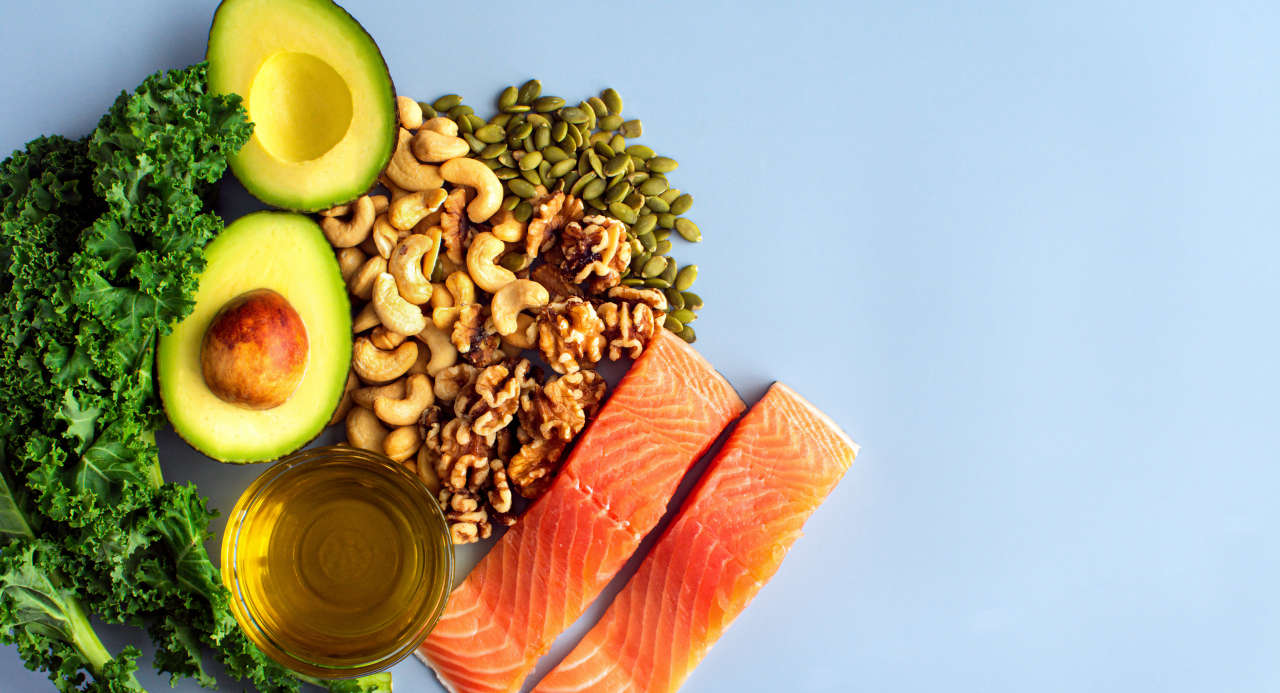Did you know that obesity or excessive body weight increases the risk of many chronic diseases, including diabetes and heart disease? Challenges associated with obesity can increase with advanced age, as aging and obesity increase the risk of many similar conditions. In addition, aging is linked to conditions, such as limited mobility and decreased metabolism, which can increase the chances of becoming obese, further exacerbating the risk of developing diseases. Hence, to prevent or manage these risks, the most crucial factor is to maintain a healthy weight through appropriate diet and exercise.
Get Your Pills Pre-sorted and Delivered at No Extra Cost
Research suggests that exercise alone is not sufficient to promote healthy weight loss. This is because diet and nutrition play an equal and, in some cases, a greater role in maintaining overall weight. In this article, we will discuss several possible diet plans for seniors to maintain a healthy weight.
General Guidelines for Seniors To Maintain a Healthy Weight
You will find several diet plans for maintaining a healthy weight for older adults. But before moving on to them, here are some general guidelines that are crucial to consider if you want to maintain a healthy long-term weight.
Portion Control
Generally, portion control is one of the simplest forms of dieting, as it does not require the elimination of any food from the diet, nor does it require dramatic changes to the diet. Portion control also allows you to eat all different types of foods, which can help satisfy your cravings, while also making it easier to fulfill all your nutritional requirements.
Portion control is the best way to maintain weight in the long term. You can generally eat whatever you want, as the main driving principle of portion control is to reduce portions of food. In its simplest form, portion control involves no changes to the diet except to reduce the portion size of food to a healthy amount. For an average person, this would generally mean reducing portion size by 10 – 15% (the scientifically calculated beneficial range for calorie restriction). For an overweight or obese person who generally overconsumes calories, the reduction must be much higher, in the range of 15 – 30%, based on the level of overconsumption by the individual. However, it is recommended that individuals gradually reduce portions over a longer period of time for more sustainable results (e.g., reducing portions by 5% each month until a desired reduction is achieved).
In its more complex forms, portion control can include reducing portions of unhealthy foods and replacing them with healthier foods. For example, high-sugar foods with low nutrient content, such as donuts, cookies, and candy, can be replaced with healthier carbohydrates such as sweet potatoes, yams, and fruit. In addition, many sugar alternatives, including stevia and monkfruit extract, are excellent ways to appease your sweet tooth and still decrease sugar intake. Unhealthy fats, such as trans fats most commonly found in fast food, can be replaced with healthier fats, including avocados, fish, and nuts. Again, in portion control, it’s not essential to eliminate anything from your diet. Simply reducing the amount of unhealthy foods is still beneficial, which means you can still enjoy your favorite pastries and fast food occasionally. In this way, you are not entirely removing your favorite foods from your diet, which makes this type of diet much more manageable in the long term.
The number one tip to maintain a healthy weight is to practice portion control daily and limit portions of unhealthy foods. For example, if you normally eat a high-fat diet (e.g., fast food) three times a week, you can try limiting it to twice every week, and so on. Or if you eat unhealthy desserts (e.g., pastries) with every meal, you can try lowering it to once per day, and gradually reduce it more.
Some additional tips for portion control include the following:
- Use smaller dishes to trick the mind into thinking you have a larger portion of food.
- Never eat directly from the container, as measuring portion size becomes impossible.
- Drink water before every meal to reduce food intake.
- Start with fruits or vegetables at every meal to fill the stomach with lower-calorie foods first.
- Slow down! Eating slowly allows your brain to process your satiety (how full you feel) so you do not overeat.
- Employ the 20-minute rule: After you finish your portion of food, wait 20 minutes before you grab another plate. Similar to eating slowly, this allows your brain to process your satiety.
- Follow the 70% rule: Never eat more than your feeling of being 70% full. You should never feel so full that you cannot move.
No More Pill Sorting! Our Pharmacy Pre-sorts and Packages Your Pills
A High-Protein Diet
The next guideline to maintain a healthy weight is to increase the portion of high-protein foods. Increasing protein intake is especially important in older individuals to improve muscle and bone health and reduce the risk of sarcopenia (an age-related loss in muscle mass and strength) and osteoporosis (loss of bone mass and strength).
One important consideration when increasing protein intake is to ensure that you are not increasing your total calorie intake. For example, do not simply add more protein to your same portion of food. Instead, reduce some carbohydrates or fat from your diet and replace them with protein-enriched foods. Another important consideration is to choose healthy, protein-rich foods such as yogurt, chicken, fish, egg whites, nuts, and legumes rather than unhealthy foods that are also high in sugar and fats.
More Fruits and Vegetables
If you increase the amount of fruits and vegetables in your diet, you will crave less non-healthy foods. Since fruits tend to also be high in sugar, it is a healthy way to consume sugar and reduce your sugar cravings. Adding or increasing the portion of fruits and vegetables in your lunch, dinner, or snacks is an ideal way to fill your stomach with healthy foods, leaving less space for unhealthy foods. Fruits and vegetables tend to have much lower calories per volume of food, and thus they are a great way to eat larger portions and feel fuller while consuming fewer calories.
Increased Physical Activity

An important aspect of maintaining a healthy weight for seniors is to increase your physical activity throughout your day and avoid a sedentary lifestyle. Diet is only half of the equation, and it is just as important to maintain an active lifestyle. This does not mean that it is necessary to always perform organized exercise, as there are numerous ways to increase physical activity.
You can play with toddlers at home, go for morning or evening walks in the park, or walk to a nearby market for daily groceries. This is not only good for your physical health but will also improve your overall mental well-being. For those with limited mobility, yoga is a great alternative. Read our article on yoga to learn more about yoga for seniors.
Hydration
Hydration is the key to boosting stomach fullness, refreshing your mood, improving digestive health, and stopping unnecessary cravings for junk foods. You can take sips of water from a bottle throughout the day to keep yourself hydrated. There are also numerous low or zero calorie options for hydration including electrolyte-based waters, zero-calorie flavored waters (both with and without added sweeteners), and scent-flavored hydration.
Mediterranean Diet for Seniors
One well-known diet to maintain a healthy weight in seniors is the Mediterranean diet. The Mediterranean diet involves less or moderate consumption of alcohol and animal-based foods.
The diet also recommends consuming primarily healthy fats and emphasizing plant-based foods. According to a study in 2013, the Mediterranean diet reduced the risk of cardiovascular diseases by up to 30%.
Here is what you can eat when you follow this diet:
- The main factor in this diet is to replace all oils with healthy oils. The simplest way to do this is to replace all cooking oil with olive oil (other acceptable oils include seed oils like canola, soybean, and flaxseed and nut oils such as walnut, hazelnut, and almond).
- You can have white meat, like chicken, and should avoid red or processed meat, like beef, sausages, or burgers.
- The Mediterranean diet allows you to have seafood, beans, and whole grains. You should eat at least one serving of fish or other seafood daily.
- Have two or more servings of vegetables with one serving of salad every day. Increase the intake of leafy greens.
- You should eat fruits every day and limit or avoid the use of cream, butter, carbonated or sweet beverages, fries, and bakery items, like cake, donuts, or cookies.
- Eat low-fat and non-sugary dairy products that are high in calcium.
- Consume nuts or seeds at least once per day.
Medbox: A Safer Way To Take Medication
Food Ideas for the Mediterranean Diet:
Fruits: Blueberries, strawberries, peaches, apples, oranges, and melons.
Vegetables: Broccoli, spinach, carrots, peas, or mixed vegetables.
Grains: Brown rice, whole grain bread or pasta, oats, and quinoa.
Nuts: Cashews, walnuts, pistachios, or almonds.
Seeds: Chia or sunflower seeds, hemp seeds, and pumpkin seeds.
Seafood: Fish, salmon, shrimp, and trout.
Legumes: Kidney beans, black beans, chickpeas, or lentils.
Dairy products: Low-fat milk and yogurt.
Healthy fats: Olives, avocado oil, and extra virgin olive oil.
Why Is the Mediterranean Diet Good for Seniors?
As the Mediterranean diet incorporates healthy foods with meals enriched with vitamins, fiber, iron, and calcium, it can be beneficial for seniors in numerous ways:
It Improves Heart Health
With age, our heart muscles become less efficient in pumping blood throughout the body. Additionally, certain age-related changes may develop, like thickening of the heart muscles and reduced ability to respond to stress, increasing the risk of cardiovascular diseases and heart failure.
The Mediterranean diet is rich in healthy fats, like nuts and olive oil, with plenty of vegetables, fruits, and whole grains. This helps in improving and maintaining overall heart health and prevents the decline of heart functions.
It Maintains Bone Health
It’s inevitable that with age, we experience weakened bones and a loss of bone density, increasing the risk of osteoporosis. In addition, specific hormone-related changes in the body in seniors, like menopause, can also contribute to a loss of bone density and weakened bones.
To maintain bone health in seniors, it is crucial to eat a diet rich in calcium and vitamins. The Mediterranean diet includes various foods rich in vitamins and calcium, thus maintaining bone health and preventing your bones from weakening.
It Boosts Brain Health
The most common health decline seen in the elderly is reduced brain activity. Many seniors, after reaching the age of 80, become prone to developing brain disorders like dementia, Parkinson’s disease, stroke, anxiety, panic disorders, or Alzheimer’s disease.
The Mediterranean diet emphasizes eating fish, vegetables, and fruits that are rich in nutrients, which play a major role in preventing cognitive decline, reducing the risk of Alzheimer’s disease and other CNS disorders, and supporting and maintaining brain health.
It Improves Digestive Health
Digestive issues are another common health problem faced by people as they age. Our body’s ability to digest foods may decrease with age, raising the risk of constipation, vomiting, stomach pain, and diarrhea.
To help maintain the digestive system as we age, the Mediterranean diet focuses on staying hydrated and physically active and following a diet that is rich in fiber. This helps promote healthy digestion and reduces the risk of stomach issues.
Medbox: Never Sort Medications Again
The DASH Diet for Seniors (Dietary Approach To Stop Hypertension)
DASH (dietary approach to stop hypertension) is another good diet for seniors to maintain a healthy weight. As the name suggests, the DASH diet was mainly designed to manage high blood pressure in adults or seniors. But the diet has also been shown to be effective for reducing weight and managing overall health as it emphasizes healthy eating.
The DASH diet is almost the same as the Mediterranean diet as it recommends increasing the intake of fruits, vegetables, whole grains, lean proteins, and low-fat dairy products.
Here is how to follow the DASH diet:
- You should eat 3 – 4 servings of various types and colors of vegetables per day.
- In the DASH diet, it is recommended to replace refined grains, like white pasta and white bread, with whole grains food, such as brown rice and whole wheat bread.
- You should avoid processed foods high in sodium and choose low-salt food options.
- Eat lean protein, like fish, beans, and skinless chicken.
- Replace sugary drinks and meals with naturally sweet foods, like fruits, nuts, or vegetables, such as sweet potatoes and beets.
- Do at least 30 minutes of moderate-intensity exercise daily or on most days of the week.
- The DASH diet recommends staying hydrated and drinking plenty of water throughout the day to prevent overeating. It also helps you stay full.
- Limit or avoid full-fat dairy products and high-fat meats, like beef.
Benefits of the DASH Diet
The DASH diet offers the following benefits:
- It helps decrease blood pressure and reduces the risk of heart disease by limiting salt intake and increasing whole, unprocessed foods in your diet.
- The DASH diet helps reduce weight through a well-balanced healthy diet with limited sugars and saturated fats.
- It improves insulin sensitivity, maintains blood sugar levels, and reduces the risk of type 2 diabetes.
- By incorporating a higher amount of fruits, vegetables, and whole unprocessed foods that are rich in antioxidants in your diet, this diet reduces body inflammation and helps decrease the risk of chronic diseases, like cancer, arthritis, and Alzheimer’s disease.
- It improves overall mental and physical health.


